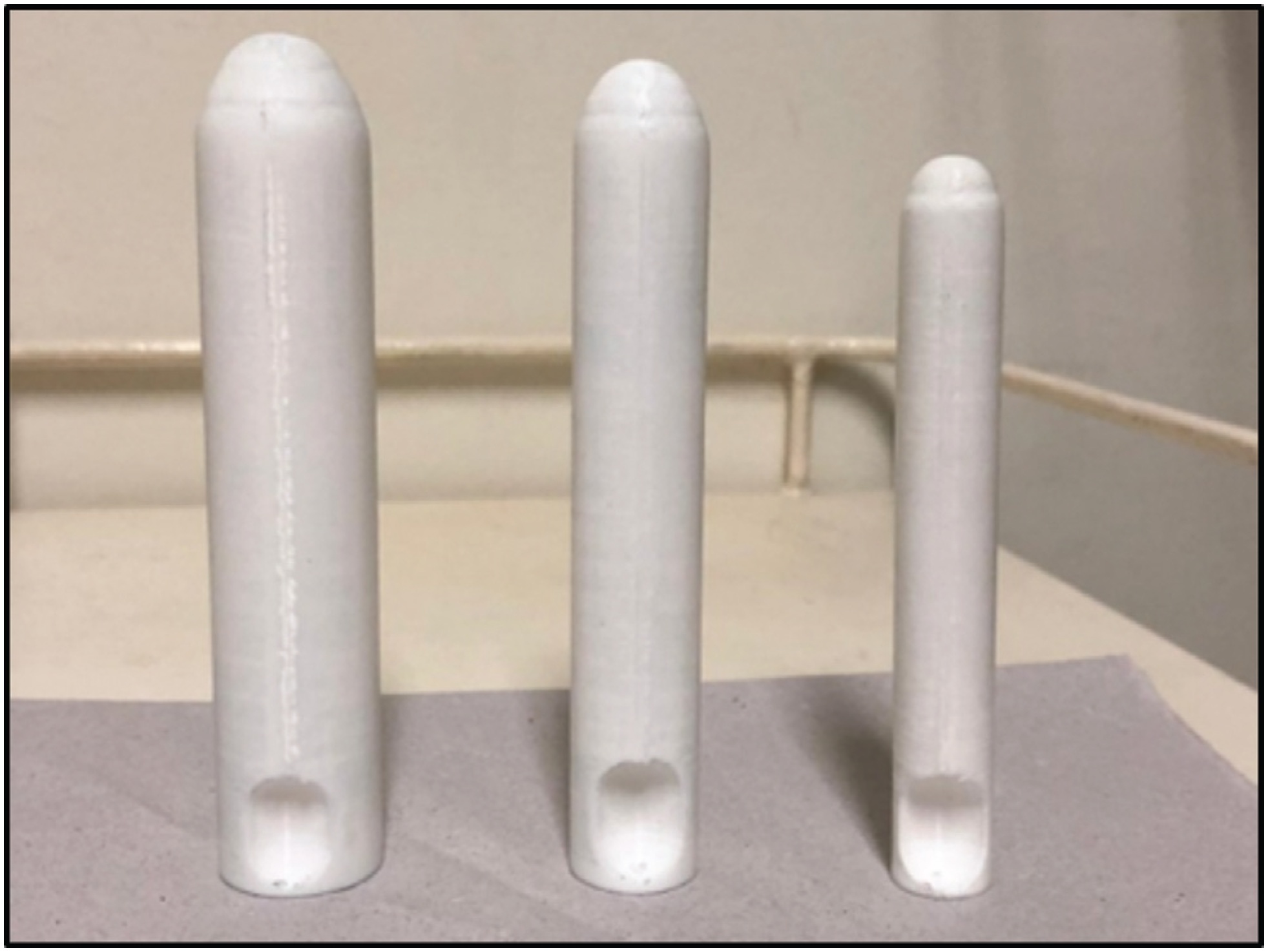Summary
Revista Brasileira de Ginecologia e Obstetrícia. 2022;44(12):1110-1116
The aim of this study was to evaluate the use of vaginal molds, made with three-dimensional (3D) printing, for conservative treatment through vaginal dilation in patients with vaginal agenesis (VA).
A total of 16 patients with a diagnosis of VA (Mayer-Rokitansky-Küster-Hauser syndrome, total androgen insensitivity syndrome, and cervicovaginal agenesis) from the Federal University of São Paulo were selected. Device production was performed in a 3D printer, and the polymeric filament of the lactic polyacid (PLA) was used as raw material. A personalized treatment was proposed and developed for each patient.
There were 14 patients who reached a final vaginal length of 6 cm or more. The initial total vaginal length (TVL) mean (SD) was 1.81(1.05) and the final TVL mean (SD) was 6.37 (0.94); the difference, analyzed as 95% confidence interval (95% CI) was 4.56 (5.27–3.84) and the effect size (95% CI) was 4.58 (2.88–6.28).
The 3D printing molds for vaginal dilation were successful in 87.5% of the patients. They did not present any major adverse effects and offered an economical, accessible, and reproducible strategy for the treatment of VA.
